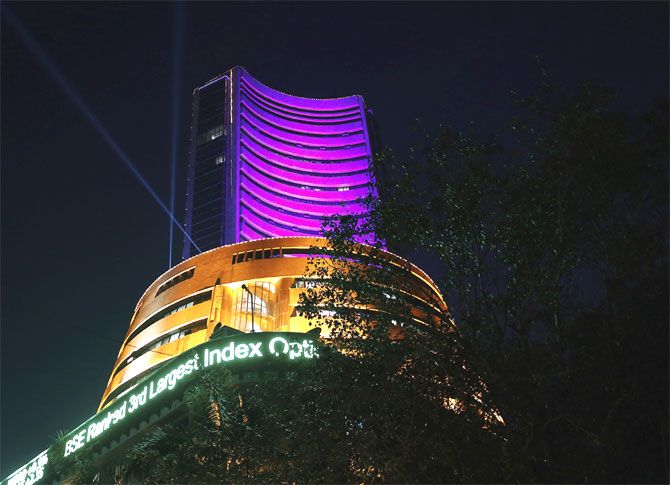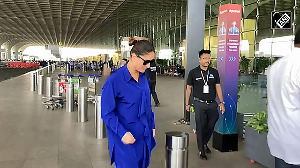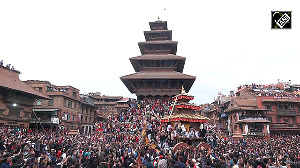 The exchange, say sources, began mock trading from early October and around 250 Indian brokers have said they'd take membership of the international exchange.
The exchange, say sources, began mock trading from early October and around 250 Indian brokers have said they'd take membership of the international exchange.
The Bombay Stock Exchange proposes to launch commodity derivatives trades, including in options, in non-agricultural commodities at its international bourse coming up at Ahmedabad-based GIFTCity.
The exchange will be inaugurated on January 9 by Prime Minister Narendra Modi. Other products would include rupee and equity derivatives, as well as derivatives in indices developed by S&P, Indian or international.
The exchange, say sources, began mock trading from early October and around 250 Indian brokers have said they'd take membership of the international exchange.
Around 75 are said to have applied with company formation, after which they will apply to the Securities and Exchange Board of India for registration. Many more are expected to do so in the coming weeks, said a source.
According to Sebi guidelines issued early this week, “There shall be a single market structure to achieve synergies in terms of various operations and to facilitate ease of doing business.”
This means that in international exchanges, all asset classes -- equity, currencies, commodities and debt, including foreign-listed debt such as masala bonds, will be allowed for trading on a single platform. In India, stock exchanges cannot start commodity derivatives and commodity exchanges cannot do currencies with which commodities have a direct correlation; the regulator has to permit this.
In the first phase in the BSE international exchange, only derivatives of all asset classes will be allowed. For instance, shares of Reliance Industries or Apple or Microsoft will not be available for trading but their futures could be traded.
In commodities, BSE plans to launch gold, silver, non-ferrous metals and crude oil derivatives, including their options, and dollar-rupee futures. Using its tie-up with S&P indices, derivative trading in local and global indices would be launched gradually.
Will Indians be able to use the foreign investment annual limit of $2.5 lakh is not clear. Market participants and stakeholders have asked Sebi and the Reserve Bank to permit using this facility in derivatives trading on the GIFT City-based international exchange.
B K Sabharwal, immediate past president of the Commodity Participants Association, said “brokers are enthused about trading on the GIFT-based exchange, including commodities, as there are several benefits”. The benefits include exemption in commodity transaction tax, stamp duty, service tax and so on.
The regulator has permitted trading for the whole day and rupee-dollar futures would be another attraction; these are traded only on the Dubai-based DGCX.
A broker said on condition of anonymity, “Brokers are initially looking to do proprietary trading and jobbing on the international exchange as there will not be any Securities Transaction Tax, service tax or stamp duty.
Even short-term and long-term capital gain tax or treating derivative gains as speculative profit will not be there. Only MAT (Minimum Alternate Tax) might apply, which will help them generate volume and do market making till overseas clients come to them.”
From April, tax changes in India will make it costlier for foreign portfolio investors and individual foreign to trade on Indians exchange; it will be relatively attractive for them to trade in the GIFT City-based exchange.
At present, several traders take positions in non-agri commodities in India and also do arbitrage in global exchanges by trading through a broker in Dubai having membership of international commodity exchanges like the LME, ICE-Comex, C-Bot, etc.
Such paired contracts are not available to all but those who have international businesses do it with money abroad. Brokers hope that brokerages in GIFT will be able take membership of international exchanges and do this arbitrage, which regulators are yet to clarify.
In the commodity segment, only non-agriculural ones will be permitted for trading on the GIFT international exchange, as Sebi wishes to first assess the impact on commodity prices.
Photograph: Sahil Salvi.







 © 2025
© 2025